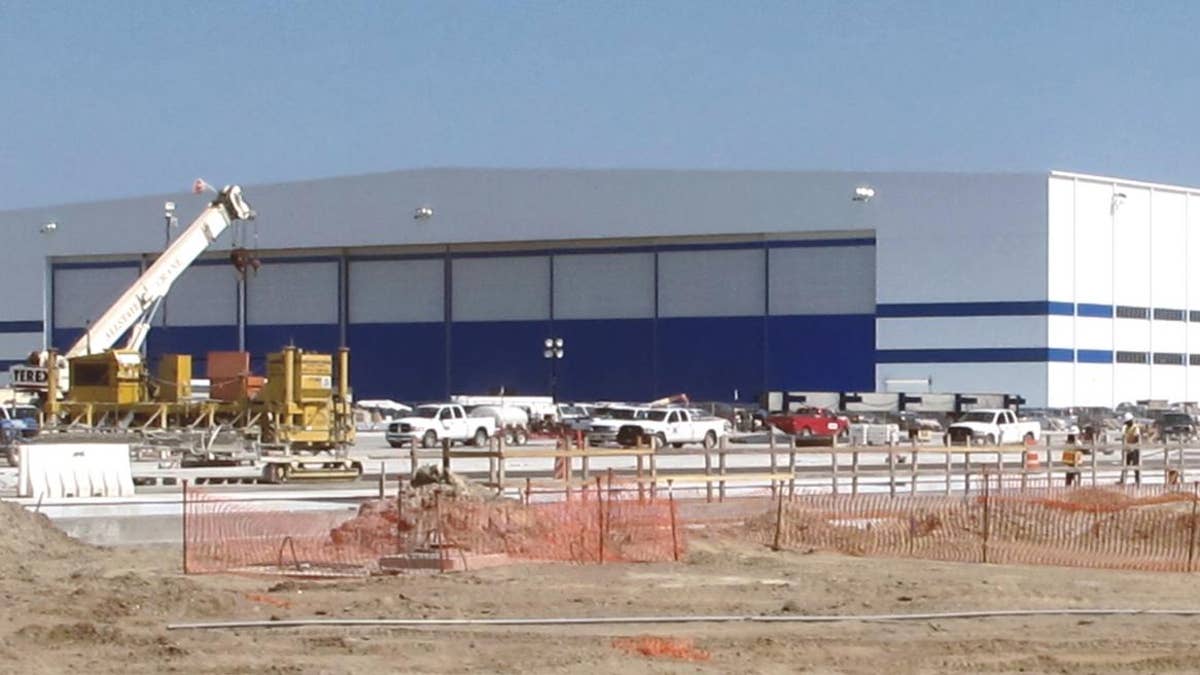
Work continues Tuesday, April 19, 2011, at the Boeing's new aircraft assembly site in North Charleston, S.C. (AP Photo/Bruce Smith)
Some South Carolina lawmakers are up in arms, calling a National Labor Relations Board complaint against Boeing for planning to build airplanes at a non-union plant an attack on right-to-work states.
In 2009, Boeing announced it would build additional assembly lines at a new factory in North Charleston, South Carolina to aid in production of Boeing 787 airliners. The Palmetto State is a right-to-work state, while Boeing's home factory in Seattle recognizes unions.
The International Association of Machinists and Aerospace Workers asserts that during a 2008 strike at Boeing's factory in Seattle, company executives threatened they would open their next assembly line in a right-to-work state in retaliation for workers walking off the job.
With the new factory scheduled to open this summer, the union filed an unfair labor charge with the NLRB, claiming Boeing engaged in unfair labor practices by proceeding with the South Carolina facility. The NLRB agreed and filed a complaint against Boeing.
"This is nothing more than a political favor for the unions who are supporting President Obama's re-election campaign," Sen. Jim DeMint, R-S.C., said in a statement. "Unfortunately, it comes at the expense of hundreds of jobs in South Carolina and thousands of jobs nationwide."
DeMint argues if the complaint goes forward, right-to-work states will struggle to attract jobs.
"There is no doubt that if the National Labor Relations Board's claim against Boeing moves forward, it will have a chilling effect on job growth in my state and in right-to-work states across the country," he said.
But Boeing's union workers say the move into new territory is all about hiring non-union labor.
"Boeing's decision to build a 787 assembly line in South Carolina sent a message that Boeing workers would suffer financial harm for exercising their collective bargaining rights," IAM Vice President Rich Michalski said in a statement on the union's website.
Boeing argues it doesn't intend to hurt union workers and points out that it has added 2,000 jobs in the Seattle area since it announced the South Carolina expansion. And South Carolina lawmakers are concerned about the jobs in their state.
"If successful, the NLRB complaint would allow unions to hold a virtual ‘veto' over business decisions," Sen. Lindsey Graham, R-S.C., said. "Left to their own devices, the NLRB would routinely punish right-to-work states that value and promote their pro-business climates."




